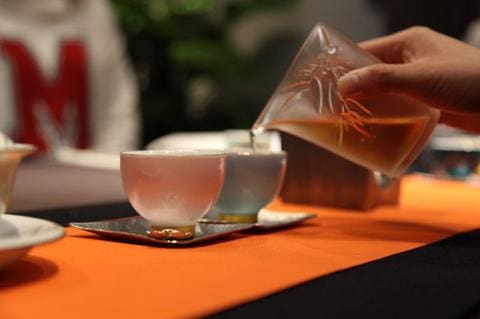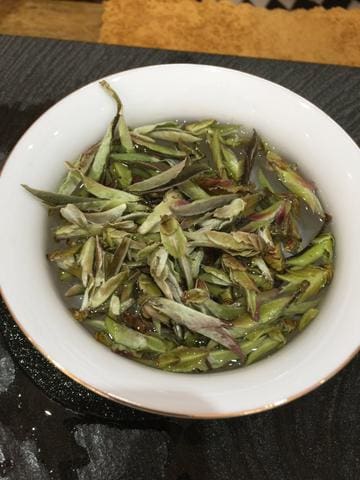
Should You Use Bottled Water or Tap Water for Your Tea? It’s Complicated.
If you’re like most tea drinkers, you have a daily ritual that involves selecting your favorite tea, heating your water, and then infusing your tea leaves until it’s ready to drink.

But even though this ritual is broadly the same for most of us, the details make all the difference. Think about how many ways there are to make the same cup of tea.
Some of us sort through myriad tea bags while others might look at each of their loose-leaf teas. Some of us will heat our water in the microwave while others will gleefully fill the kettle and place it on the stove. And some of us have no qualms about using tap water while others prefer to purchase special bottled water. With so many variations, you might find yourself wondering whether any of this matters.
Isn’t tea just tea?
Is one way of doing it really better than another?
Researchers working out of Cornell University’s Sensory Evaluation Center were wondering precisely this, and the conclusion might surprise you.
Along with time, temperature, brewing vessel, and water-to-leaf ratio, the quality of water has long been known to be one of the most important factors that can influence the taste of your tea. Though seldom given a second thought by casual tea drinkers today, references to the importance of water quality are ancient.
The ever-wise Lu Yu, writing his The Classic of Tea in the 8th century, for example, went to great lengths to explain how we needed to be conscientious in selecting the right water. In that text, he strongly advises that we use spring water, fresh from mountain streams, but if we must, he says, then river water is sufficient. He believed well water, however, was inferior to both.

Lu Yu may have been on to something.
Today, we know that there are two minerals found in water that play a key role in ruining our tea: calcium and magnesium. And it isn’t uncommon to find high levels of these minerals in wells.
Calcium interferes with the extraction of phytochemicals from the tea, such as caffeine and theaflavin, while high levels of both calcium and magnesium can promote tea cream.
You may have seen this at one point or another. Tea cream occurs whenever your tea becomes slightly cloudy as it cools, looking as though there are particulates floating about.
But what else can we learn about water quality and tea?
Following up on previous studies, these Cornell researchers decided to test city tap water, bottled spring water, and deionized water. Using tap water, they were able to approximate Lu Yu’s suspicions about well water since tap happens to contain a far greater amount of calcium, magnesium, and sodium than either spring or deionized. In fact, deionized water, by contrast, had almost no mineral content whatsoever.
These three waters were used to brew a cup of loose-leaf green tea and loose-leaf black tea, and then they were presented in triplicate to a tasting panel of 103 participants, all of whom self-identified as regular tea drinkers who consumed tea three to five times each week.
The results were surprising.

Upon doing a chemical analysis of each, the teas prepared with spring and deionized water had higher concentrations of phytochemicals than teas prepared with tap water. Because research shows us that these chemicals are beneficial, especially the health-promoting catechins, this is a good thing.
However, upon tasting, the panelists believed that the teas prepared with tap water were less bitter, and they generally enjoyed sipping them just a little more. Scientifically, this makes sense as catechins also happen to be bitter-tasting compounds.
So who wins this debate?
Well, it turns out that Lu Yu was right after all—spring water really does make the best tea in terms of overall health and interesting flavor. Unfortunately, however, it also looks like many people’s taste buds might lead them to prefer the well water flavor, subjectively believing that a lack of bitterness is better in terms of taste.
At MeiMei Fine Teas, we’ve always believed in the importance of spring water and continue to do so. It’s a clear winner if you’re aiming to get the most out of your tea, all things considered (health benefits, complexity, pleasant appearance).
But if you happen to prefer the taste of your tea when using tap water instead, that’s okay too. Like our vegetables, it looks like many tea drinkers don’t always find the healthiest option to be the tastiest.
Reference: Franks, M, et al. (2019). “The influence of water composition on flavor and nutrient extraction in green and black tea,” in Nutrients 2019 11(1), 80, pp. 1–13.
